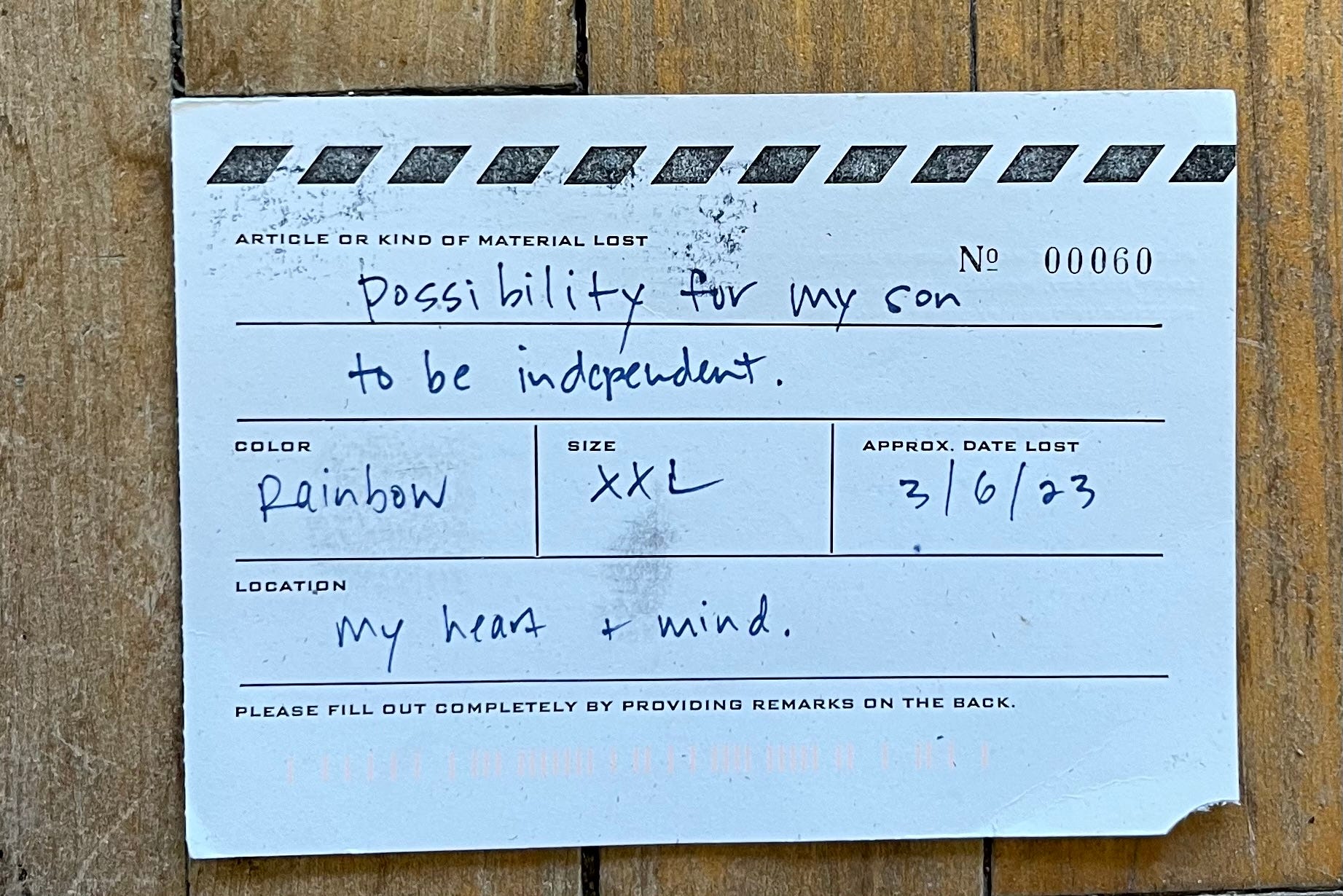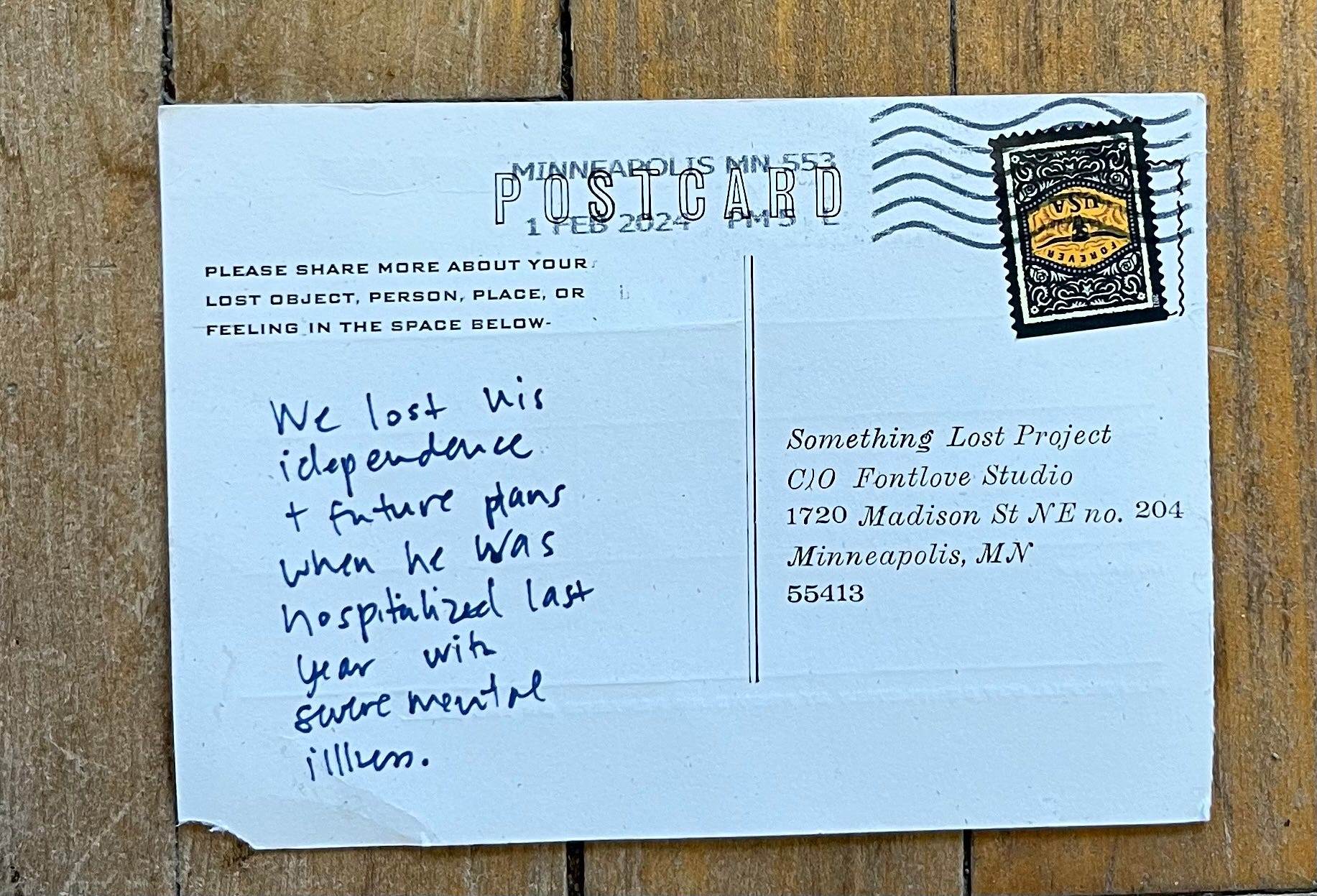№ 00060: My Child's Independence
Ambiguous loss in parenthood, grieving and hoping at the same time.
Today on Something Lost we have № 00060, looking to claim the lost possibility for their child to be independent.
A heads up, I’ll be discussing ambiguous loss and grief in parenthood, and mental illness.
This submission is very close to my heart, because I have a similar situation with my child. Lost Object № 00060 is the “possibility for my son to be independent”.
On the back of the claim tag there is a little more information on the lost item:
It reads, “We lost his independence and future plans when he was hospitalized last year with severe mental illness.”
My dear claimant — there is so much in these few words, and while I don’t know the particulars of your situation, I do know the grief of losing the parenthood you thought you would have, and the life for your children you envisioned.
Because of this, I am honored to receive this claim ticket. It takes powerful vulnerability (not a contradiction in terms, because it takes strength to be open and vulnerable in our society) to put this out in the world and try to claim it.
This project is about trying to collectively find what we’ve lost. But I don’t want to minimize this claim with some pat words about finding hope. So I’m acknowledging that sometimes, we need to sit in a loss and just have it witnessed.
I have been interested in the work of renowned Minnesota psychologist Dr. Pauline Boss, who coined the term “ambiguous loss”. Ambiguous loss differs from traditional loss and grief in that instead of mourning and experiencing a concrete loss such as a death, ambiguous loss is more unresolved and more isolating in its experience. It causes profound, ongoing stress and disruption to family systems. But she also writes about ways to build resiliency in the face of ambiguous loss, with six guidelines:
Finding Meaning
Adjusting Mastery
Reconstructing Identity
Normalizing Ambivalence
Revising Attachment
Discovering New Hope
Having a child with severe mental illness means a thousand losses big and small — like when school picture day rolls around, but your child cannot attend school. Or when you look at families out and about, and it seems so easy for them, but your child can’t leave the house. When you cannot leave them alone because it is unsafe. When you cannot meet your own needs, or the needs of your other children (these are all of my own experiences, claimant - your mileage may vary).
I think it’s important to acknowledge this as the grief and loss that it is. It’s a grief that can overwhelm, and speaking for myself personally, feels like a physical sensation of tightness in my chest that takes my breath away.
In those moments, when the pain and stress and the sense that you can’t possibly continue on as things are threaten to overwhelm you and pull you under, the only thing that I have found that brings peace is radical acceptance.
Radical acceptance doesn’t mean that we feel better or okay about our circumstances or loss. It just means that we acknowledge everything we’re feeling, recognizing that whatever is happening in this moment IS HAPPENING. In this moment, we can’t control it, or change it, we can’t second-guess ourselves, or our loved ones — what is just is.
It’s a practice, and not something you achieve and then you’ve reached enlightenment. It’s ongoing, hard work.
In a way, this whole Something Lost Project is a form of my radical acceptance practice. Right now, these things are lost. Let’s acknowledge them. Let’s not feel alone in them. Let’s see what is.



